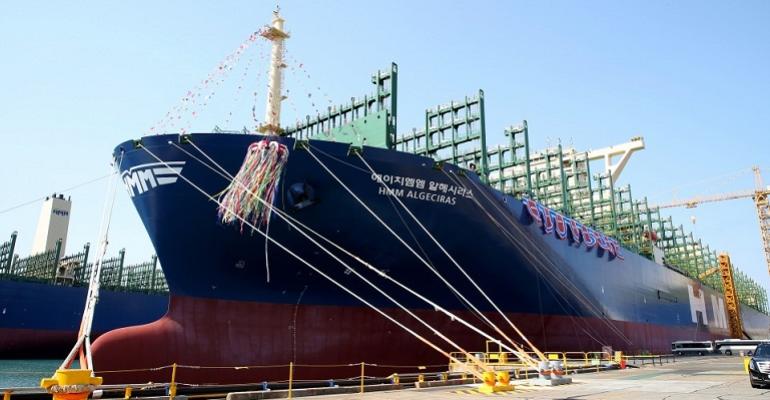The South Korean shipping company will use a CCS from manufacturer Panasia. HMM signed a Memorandum of Understanding (MoU) with Panasia, which manufacturers scrubbers and ballast water treatment systems, and performed a feasibility study on a CCS system fitted on a multi-purpose vessel.
The study found that the system could be installed without changing equipment on the vessel or impact stability of operation of the vessel. The carbon is collected in a liquefied form in a specialised tank to be offloaded from the vessel.
Following the study HMM now plans to install a CCS system onboard a containership for an operational test with Samsung Heavy Industries (SHI) and Panasia, both of which will provide engineering support.
One of the question marks over CCS is what happens to the CO2 after it is offloaded from the vessel. HMM said the collected carbon could be used in dry ice manufacture or what it described as smart farms.
An HMM official said, “We will continue its efforts on a pathway to carbon neutrality by 2050 based on collaborative work with various industrial players”.
There is growing interest around CCS and in February Eastern Pacific Shipping (EPS) completed the groundbreaking installation of a CCS from Value Maritime on board its tanker Pacific Cobalt. The company is understood to be planning equip a second vessel with CCS scrubber system during Q2.
The system acts a scrubber filter 99% of sulphur and particulate matter and also includes a CCS module that can capture up to 40% of CO2 emissions from main and auxiliary engines. Such a reduction in CO2 emissions for existing vessels would be significant in ensuring operational compliance from 2030 and beyond.
In December last year Ardmore Tankers ordered Filtree systems for six MR tankers that will be made carbon capture ready. Last month Purus Marine and Nordic Hamburg ordered four systems that will be installed on its four newbuild container vessels that will be operated by BG Freight Line.
Meanwhile in March Wärtsilä said it had received its first orders for its CCS-ready scrubber systems to be installed on four 8,200 teu containerships.
Copyright © 2024. All rights reserved. Seatrade, a trading name of Informa Markets (UK) Limited.
Add Seatrade Maritime News to your Google News feed.  |

